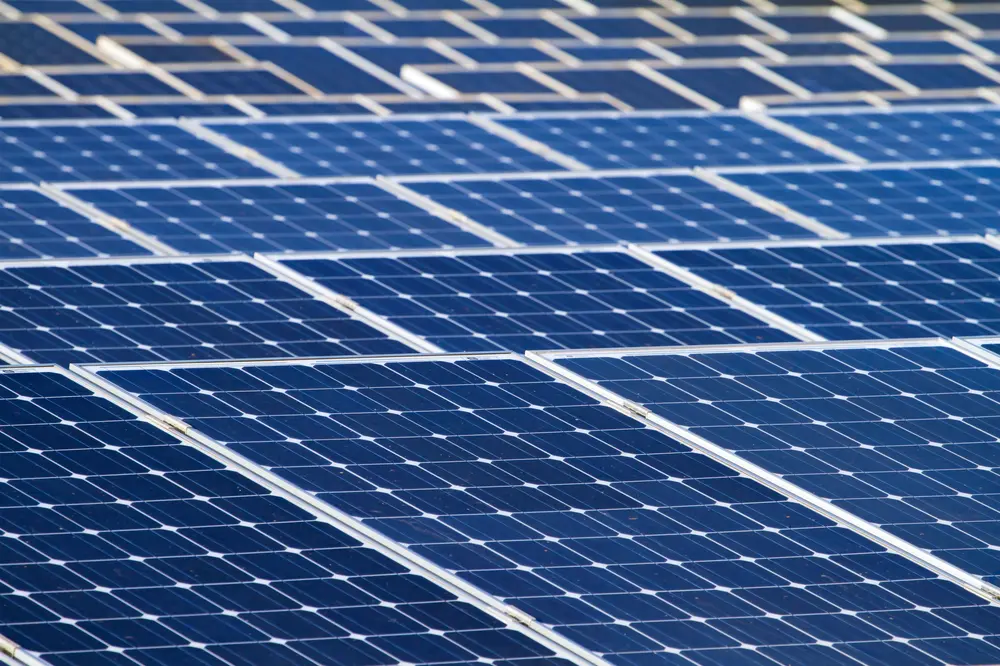PHOTO
ABU DHABI, 17th January, 2017 (WAM) -- Rooftop solar energy will help drive renewable energy to the next stage of its development in the Middle East and South Asian markets, said industry experts at the World Future Energy Summit and the Solar Expo in Abu Dhabi.
Renewable energy, particularly solar, is making rapid progress in the region, with organisers estimating that buyers at WFES have more than 200 gigawatts of planned capacity to be added within the next decade. The region is already setting the agenda for utility scale projects, with bids for projects in the UAE bringing below 3 US cents per kilowatt-hour during 2016. Part of Abu Dhabi Sustainability Week 2017, WFES is being held at the Abu Dhabi National Exhibition Centre (Adnec) from January 16 to 19. The industry expects to see similar progress in rooftop solar, driven by initiatives such as the Shams Dubai programme by Dubai Electricity & Water Authority (Dewa), which encourages PV systems on residential, commercial and industrial buildings. The projects themselves can vary in size from just a few solar panels to thousands. One of the initiatives under the Shams Dubai programme is the installation of 88,000 solar panels on buildings belonging to port operator, DP World, which will produce enough energy to power around 3,000 homes. "We are at a point where solar energy is clearly at the centre of the UAEs electricity plans, and we are beginning to see rooftop solar play an important part in this growth," said Sami Khoreibi, CEO of Abu Dhabi-based Enviromena. "Official targets are being set for installing rooftop solar panels, and policies allowing customers to sell electricity back into the network are in place. This will fundamentally change the way we think about electricity in the region."Enviromena has constructed 42 solar projects in nine countries throughout the region, including rooftop solar installations at Yas Marina Circuit and solar carpark shades at Masdar City. It sees rooftop solar as an important growth market. Rooftop and other small, localised solar projects have multiple benefits. Allowing property owners to invest in solar panels spreads the cost of expanding the electricity supply, while locating generation and consumption in the same place reduces the burden on distribution infrastructure. Particularly where residential and community projects are concerned, a sense of personal ownership can create an increased appreciation of the resource. "This has been one effect that has been observed internationally, and there is evidence that it helps build public support for renewable energy," said Khoreibi. Held under the theme of Sustaining the Clean Energy Consensus; Empowering New Players, WFES 2017 brings together the worlds leading technology providers, government delegations, innovators, and thought leaders in Abu Dhabi. "Within the growing renewable energy market, the falling cost and increasing efficiency of solar energy has particular relevance in the UAE, which is why, together with Masdar, the events host, we created a dedicated Solar Expo as part of WFES," said Naji El Haddad, group event director at Reed Exhibitions, which organises WFES in partnership with Masdar. "The region is rich in sunlight, and solar energy is a growth industry."Solar Expo, launched for the 2016 event, is one of four co-located shows now held alongside WFES, which celebrates its 10th edition in 2017. Others include the 5th International Water Summit, held in strategic partnership with Abu Dhabi Water and Electricity Authority (ADWEA), and the 4th EcoWASTE exhibition and conference, held in partnership with Tadweer, The Center of Waste Management in Abu Dhabi (CWM). Energy Efficiency Expo is the newest event, with its first edition this year.Copyright Emirates News Agency (WAM) 2017.





















